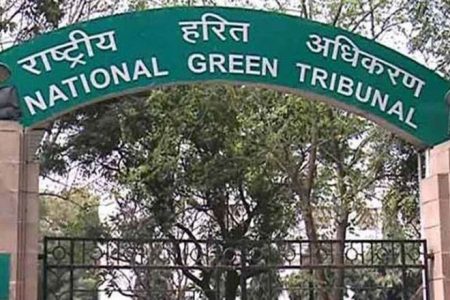SC decides whether National Green Tribunal has powers to take Suo Moto Cognisance 16/07/2019 – Posted in: Daily News
NATIONAL GREEN TRIBUNAL
For: Preliminary & Mains
Topics covered: Apex court agreed to examine a legal question of NGTs power to take Suo Moto cognizance; Role, power, and Functions of National Green Tribunal
News Flash
The Supreme Court agreed to examine a legal question whether the National Green Tribunal, has the power to take cognizance of a matter on its own.
National Green Tribunal
- The National Green Tribunal was established in 2010 under the National Green Tribunal Act 2010.
- It was set up for expeditious disposal of cases relating to environmental protection and conservation of forests and other natural resources.
- It is a specialized body equipped with the necessary expertise to handle environmental disputes involving multi-disciplinary issues.
Place
- NGT is set up at five places of sittings including New Delhi, Bhopal, Pune, Kolkata, and Chennai,.
- New Delhi is the main place for the sitting of Tribunal.
Chairperson and Members
- It has a full-time chairperson.
- The chairperson should have been either a judge of the Supreme court of India or Chief Justice of a high court in India.
- The tribunal has at least 10 and a maximum of 20 full-time judicial members.
- It has at least 10 and a maximum of 20 full-time expert members.
Appointments
- The appointment of members is done by the Central Government.
- The chairperson of NGT is appointed by the Central Government in consultation with the Chief Justice of India.
- Judicial Members and Expert Members are appointed on the recommendations of such Selection Committee.
- Chairperson, Judicial Member, and Expert Member hold office for 5 years.
- Maximum age of the chairman 70 years if he has been a Supreme Court Judge and 67 years, if he has been a high court judge.
Jurisdiction
- The Tribunal has jurisdiction over all civil cases where a substantial question relating to environment is involved.
- It would deal with all environmental laws on air and water pollution, the Environment Protection Act, the Forest Conservation Act and the Biodiversity Act.
- The Water (Prevention and Control of Pollution) Act, 1974
- The Water (Prevention and Control o[Pollution) Cess Act, 1977
- The Forest (Conservation) Act
- The Air (Prevention and Control of Pollution) Act, 1981
- The Environment (Protection) Act, 1986
- The Public Liability Insurance Act, 1991
- The Biological Diversity Act, 2002
Source: The Hindu
You can follow us on LinkedIn and on Instagram (Diligent IAS) for more updates related to IAS Preparation/ Study Material, Subscribe to our Facebook Page and Youtube Channel- Diligent IAS
Also, read more Daily News Updates
- Agri-Business Incubation Centre set up under RKVY-RAFTAAR
- Spektr-RG: X-ray telescope
- India’s first ethanol based bike launched

